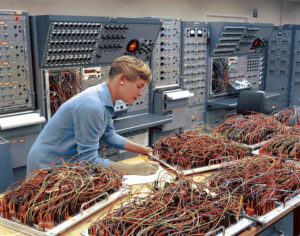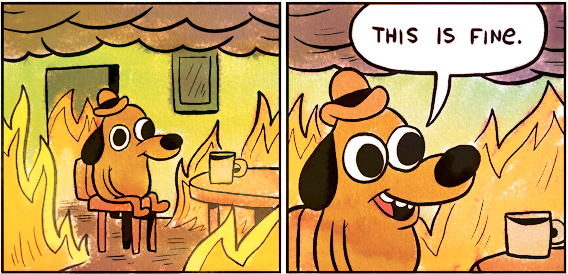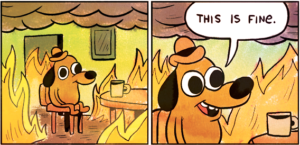My notes introducing the theme of the Museums Computer Group's 2017 conference and a call to action for people working in cultural heritage technology below.
A divided world

2016 was the year that deep fractures came to the surface, but they’d been building for some time. We might live in the same country as each other, but we can experience it very differently. What we know about the state of the world is affected by where we live, our education, and by how (if?) we get our news.
Life in 2017
We can't pretend that it'll all go away and that society will heal itself. Divisions over Brexit, the role of propaganda in elections, climate change, the role of education, what we value as a society – they're all awkward to address, but if we don't it's hard to see how we can move forward. And since we're here to talk about museums – what role do museums have in divided societies? How much do they need to reflect voices they mightn't agree with? Do we need to make ourselves a bit uncomfortable in order to make spaces for sharing experiences and creating empathy? Can (digital) experiences, collections and exhibitions in cultural heritage help create a shared understanding of the world?
'arts and cultural engagement [helps] shape reflective individuals, facilitating greater understanding of themselves and their lives, increasing empathy with respect to others, and an appreciation of the diversity of human experience and cultures.' From Understanding the value of arts & culture: The AHRC Cultural Value Project by Geoffrey Crossick & Patrycja Kaszynska
I've been struck lately by the observation that empathy can bridge divides, and give people the power to understand others. The arts and culture provide opportunities to 'understand and share in another person's feelings and experiences' and connect the past to the present. How can museums – in all their different forms – contribute to a more empathic (and maybe eventually less divided) society?
'The greatest benefit we owe to the artist, whether painter, poet, or novelist, is the extension of our sympathies. … Art is the nearest thing to life; it is a mode of amplifying experience and extending our contact with our fellow-men beyond the bounds of our personal lot.' George Eliot, as quoted in Peter Bazalgette's The Empathy Instinct
Digital experiences aren't shared in the same way as physical ones, and ‘social’ media isn't the same as being in the same space as someone experiencing the same thing, but they have other advantages – I hope we'll learn about some today.
We need to tell better stories about museums and computers

Shifting from the public to staff in museums… Museums have been using technology to serve audiences and manage collections for decades. But still it feels like museums are criticised for simultaneously having too much and too little technology. Shiny apps make the news, but they're built on decades of digitisation and care from heritage organisations. There's a lot museums could do better, and digital expertise is not evenly distributed or recognised, but there's a lot that's done well, too. My challenge to you is to find and share better stories about cultural heritage technologies connecting collections, people and knowledge. If we don't tell those stories, they'll be told about us. Too many articles and puff pieces ignore the thoughtful, quotidian and/or experimental work of experts across the digital cultural heritage sector.
[Later in the day I mentioned that the conference had an excellent response to the call for papers – we learnt about more interesting projects than we had room to fit in, so perhaps we should encourage more people to post case studies to the MCG's discussion list and website.]
The Museums+Tech 2017 programme
- Keynote: ‘What makes a Museum?
- Museums in a post-truth world of fake news
- Challenging Expectations
- Dealing with distance; bringing the museum to the people
- How can museums use sound and chatbots?
- Looking (back to look) forward
Speaking of better stories – I'm looking forward to hearing from all our speakers today – they're covering an incredible range of topics, approaches and technologies, so hopefully each of you will leave full of ideas. Join us for drinks afterwards to keep the conversation going. And to set the tone for the day, it's a great time to hear Hannah Fox on the topic of 'what makes a museum'…
Speaking of the conference – a lot of people helped out in different ways, so thanks to them all!

